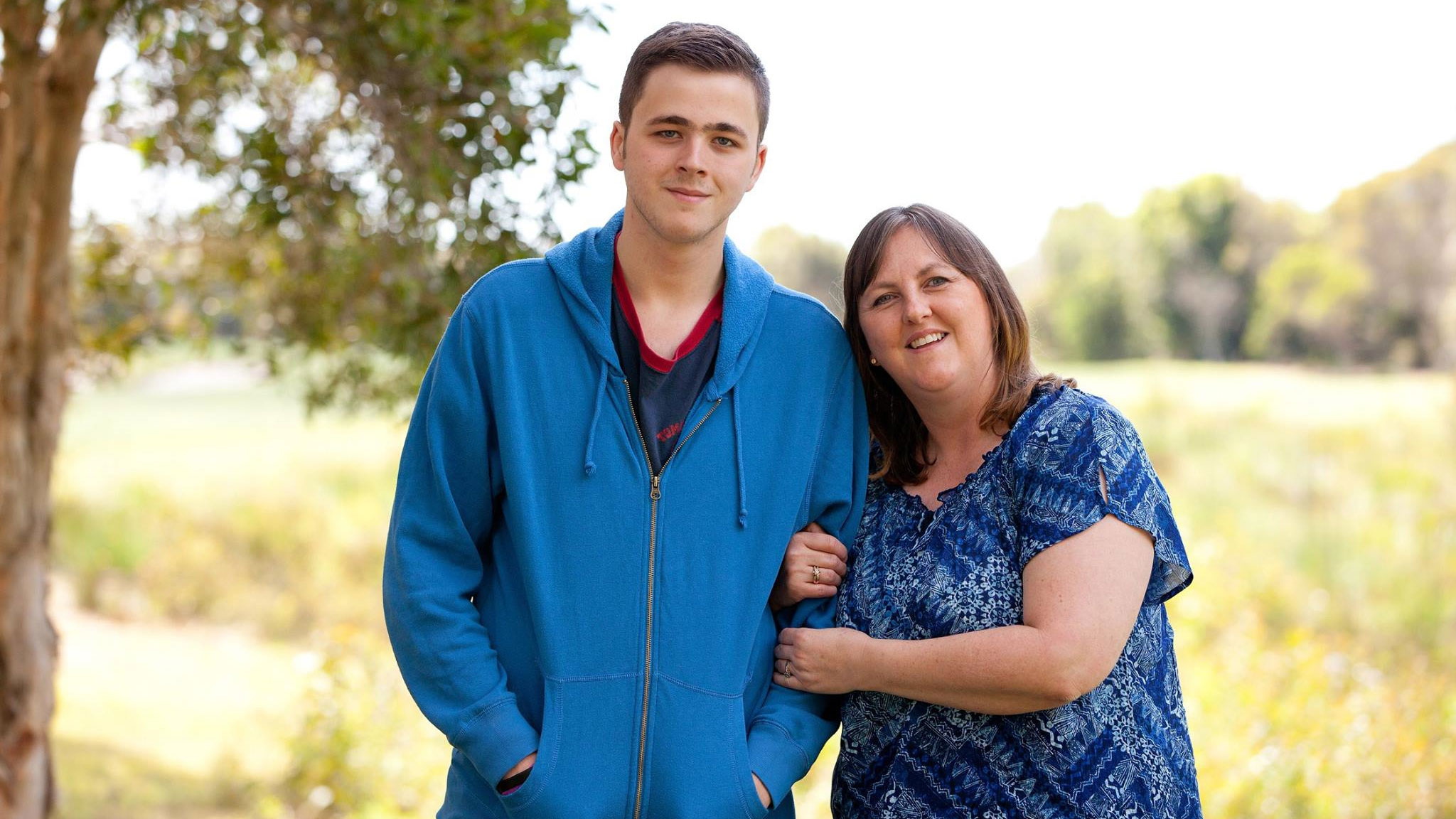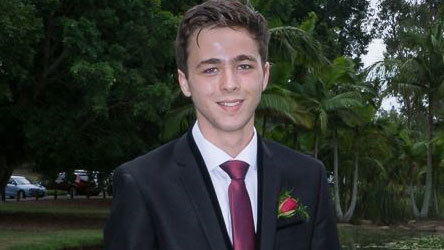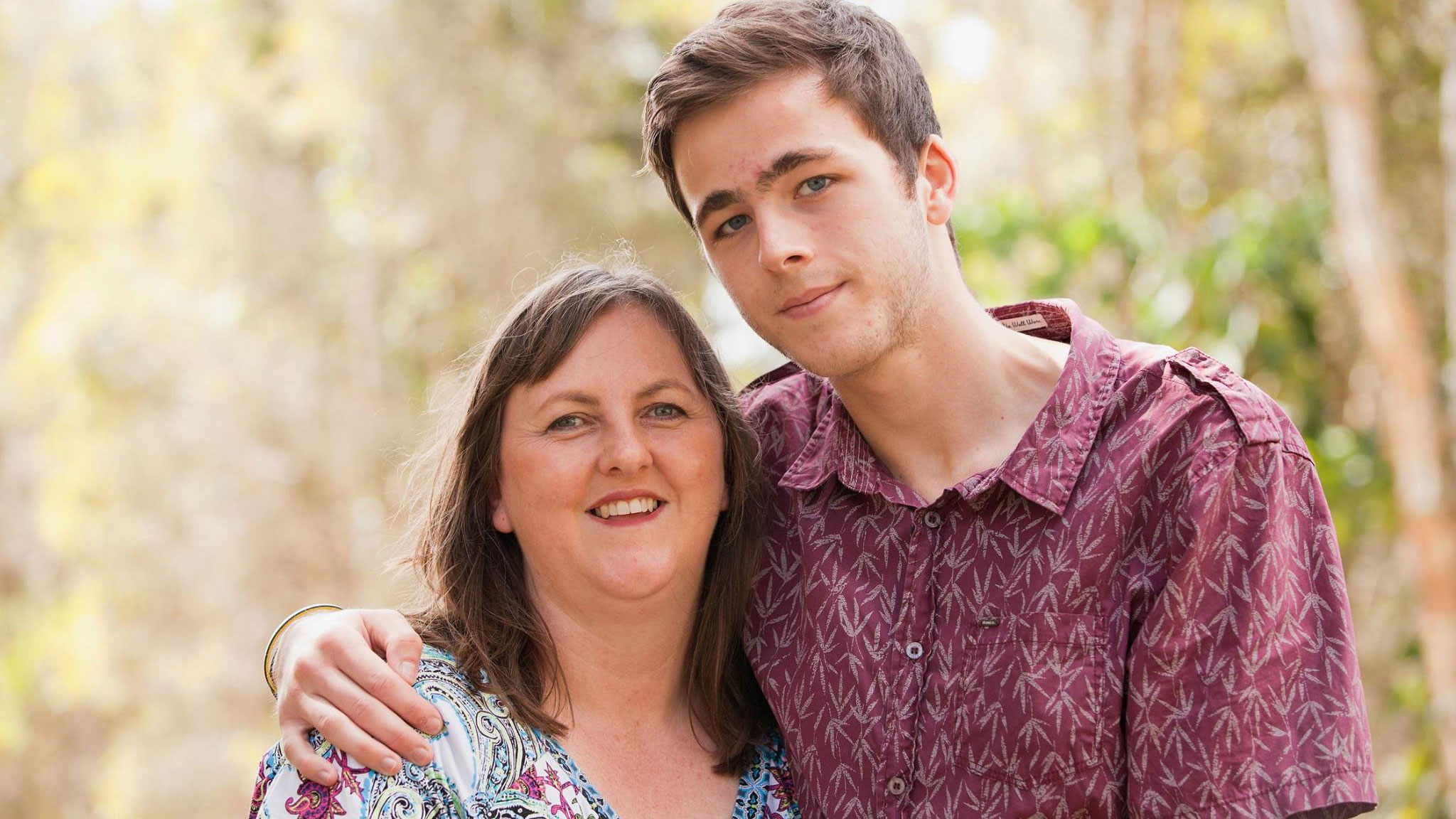Brisbane mum Lanai Carter isn't sure how she her son's next medical cannabis prescription can be filled.
Lindsay Carter, 21, has been using both cannabis oil and cannabis flower for years to treat seizures brought on by a brain tumour he was diagnosed with in 2013.
In 2015, a year before its use became legal in Australia, his family was the first in the country to be granted special permission to import botanical medicinal cannabis.

The difference the treatment makes for her son is life changing, Ms Carter says.
"When we can get the treatment he needs his seizure levels got down as low as one seizure in a week," she said.
"Without medical cannabis oil, he can have between five tonic-clonic (grand mal) seizures a day and up to 20 focal seizures in a day."
But a critical part of Lindsay's treatment, which involves taking a specific type of THC cannabis oil, has been largely unavailable in Australia - due to supply issues - since 2018.
The cannabis flower which Lindsay uses has also been hit with out-of-stock problems in recent times, partly because of high demand.
The family would be facing up to $8000 per month for Lindsay's treatment and have often had to rely on donations to afford his medical treatment.

It's a struggle Carters face constantly.
"When Lindsay knows his medicine is about to run out I see this look of absolute horror on his face," Ms Carter said.
Earlier this month, Lindsay began rationing his remaining doses and almost ended up in hospital, Ms Carter said.
"He was running low on the vaporised cannabis and he had two seizures in the same morning and went into post seizure vomiting for both of those. We really struggled to keep him out of hospital that day."
The battle to get a consistent and affordable supply of medicinal cannabis is one Ms Carter and her son have been fighting for ever since his diagnosis at the age of 14.
The Carter family was among those prominently campaigning for medicinal cannabis to be legalised in Australia as far back as 2014.
However, 18 months after it was made legal in 2016, the Carters were still forced to fly to Canada to get the medicinal cannabis Lindsay needed because of a lack of supply here.
After years of making headlines, the New York Times dubbed Lindsay the "reluctant poster boy" for medicinal cannabis in Australia.
Ms Carter said her son just wanted to get on with his life.
"He doesn't ever want to think of himself as being disabled as much as he has had to come to terms with it," she said.
"He just wants to be a normal young adult and be able to live without the fear of always having to worry where his medicine is coming from."

Ms Carter said the intense frustration she felt compelled her speak out again now on behalf of her son and other medicinal cannabis patients.
"In Australia, it's almost like medical cannabis is available to the rich and famous and not the poor and disabled," she said.
"Apart from a few very limited compassionate access schemes in children's hospitals there is nothing there for children like my son."
Ms Carter said she hoped the government could make some changes to make medicinal cannabis more affordable, such as covering it under the National Disability Insurance Scheme (NDIS).
A spokesperson for the National Disability Insurance Agency (NDIA) said health supports were the responsibility of the Health Department, rather than the NDIS.
The NDIS does not fund supports provided by the health system, including medical and clinical treatment services and medications.
This continued to be the responsibility of state and territory governments, the spokesperson said.
The Health Department is yet to respond to nine.com.au's request for comment.
Access to medicinal cannabis is granted under a Special Access Scheme run by the Therapeutic Goods Administration (TGA).
Under the scheme, doctors can provide a restricted prescription for medicinal cannabis if patients show they have a medical reason for needing it.
The demand for medicinal cannabis has more than doubled in the past year.
Last month, the TGA approved more than 8000 applications for medical cannabis.
Over the past year, the number of approvals reached almost 100,000.
Matt Cantelo is the CEO of Australian Natural Therapeutics Group (ANTG), one of the largest growers and producers of medicinal cannabis in Australia.
Mr Cantelo said despite record numbers of Australians using medicinal cannabis there were still a lot of negative perceptions about the drug, due to stigmatisation among doctors.
His Armidale-based facility was recently granted a licence to produce large quantities of medicinal cannabis oil for commercial use - a move he hopes will mean more affordable access for Australian patients.
"Many patients in Australia are unable to afford the ongoing costs of imported medicinal cannabis - which can be tens of thousands of dollars a year for the treatment of ailments like epilepsy-induced seizures," he said.
"We are seeing patients forced to the black market, or even trying to grow their own, which is not legal, nor safe."
ANTG plans to have four new varieties of Australian medicinal-grade cannabis oils available in the market within the next month.
